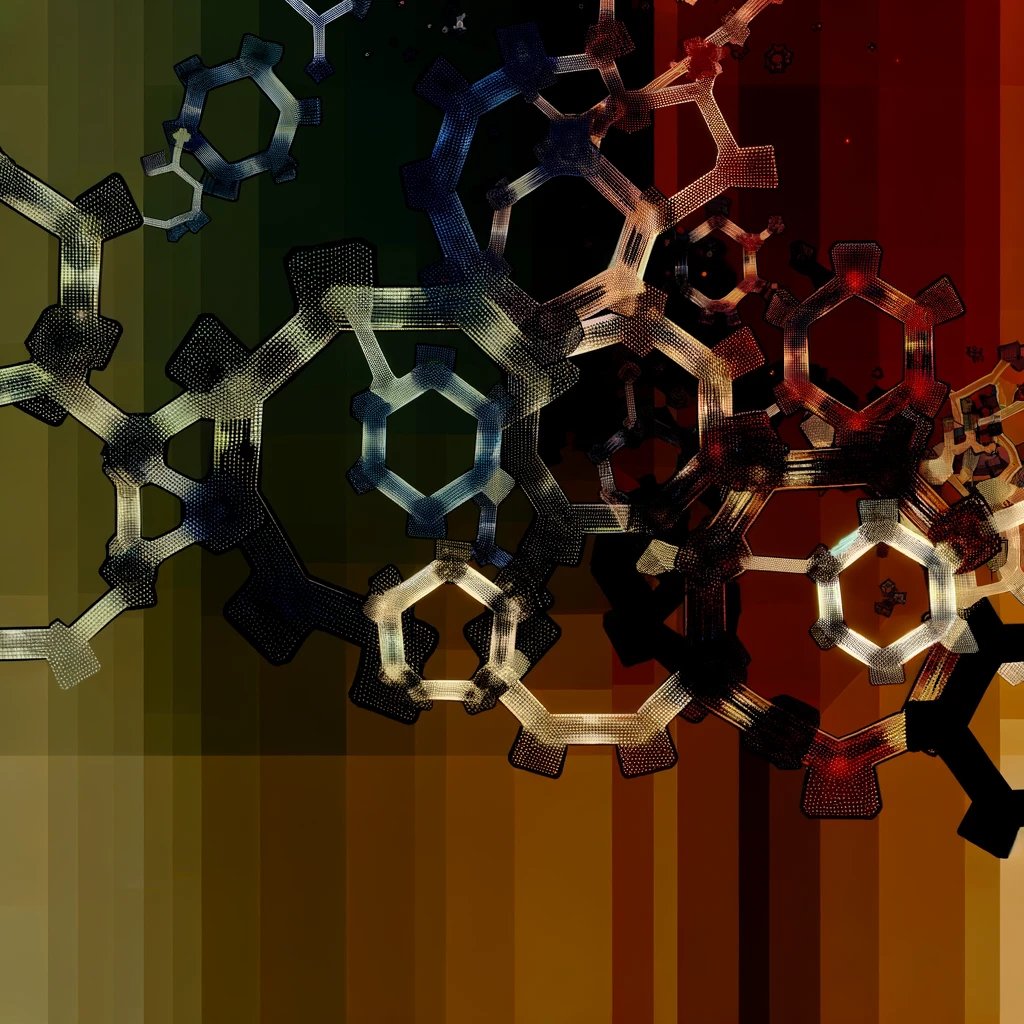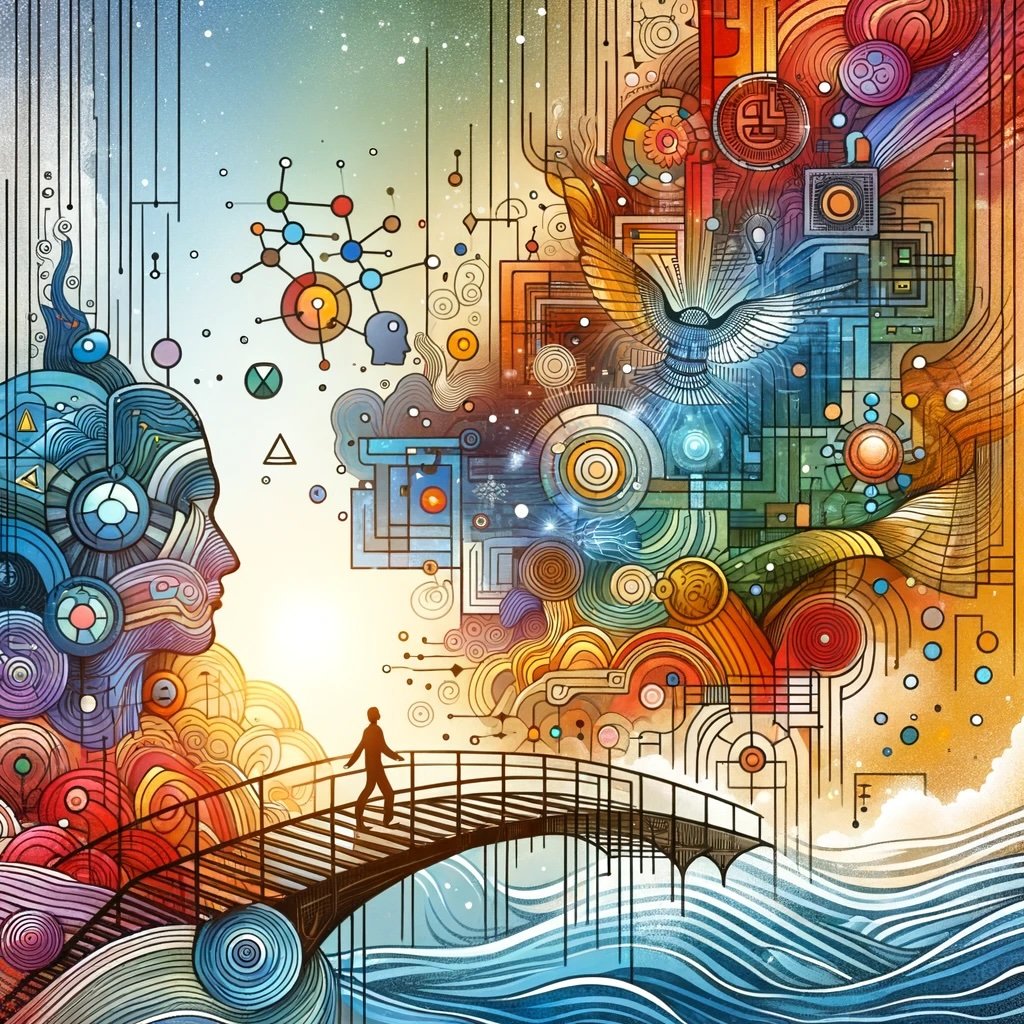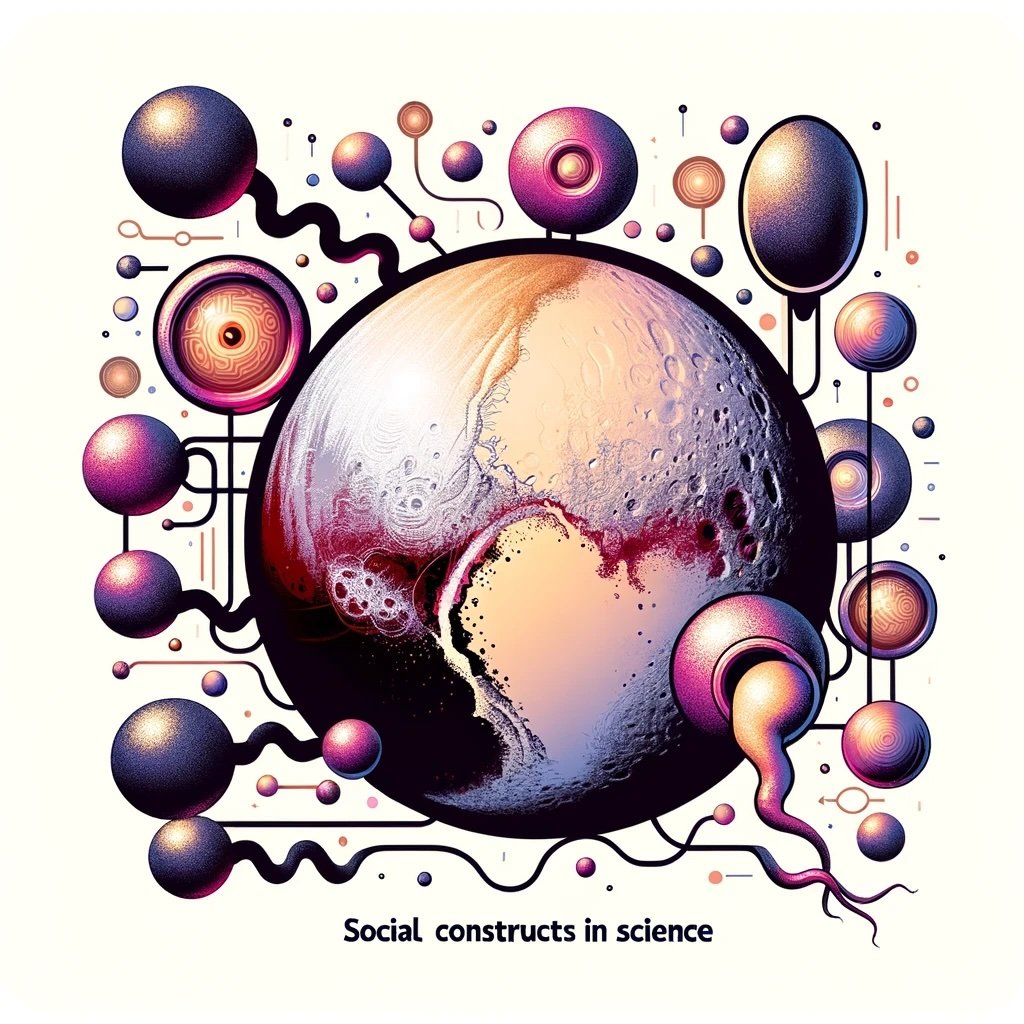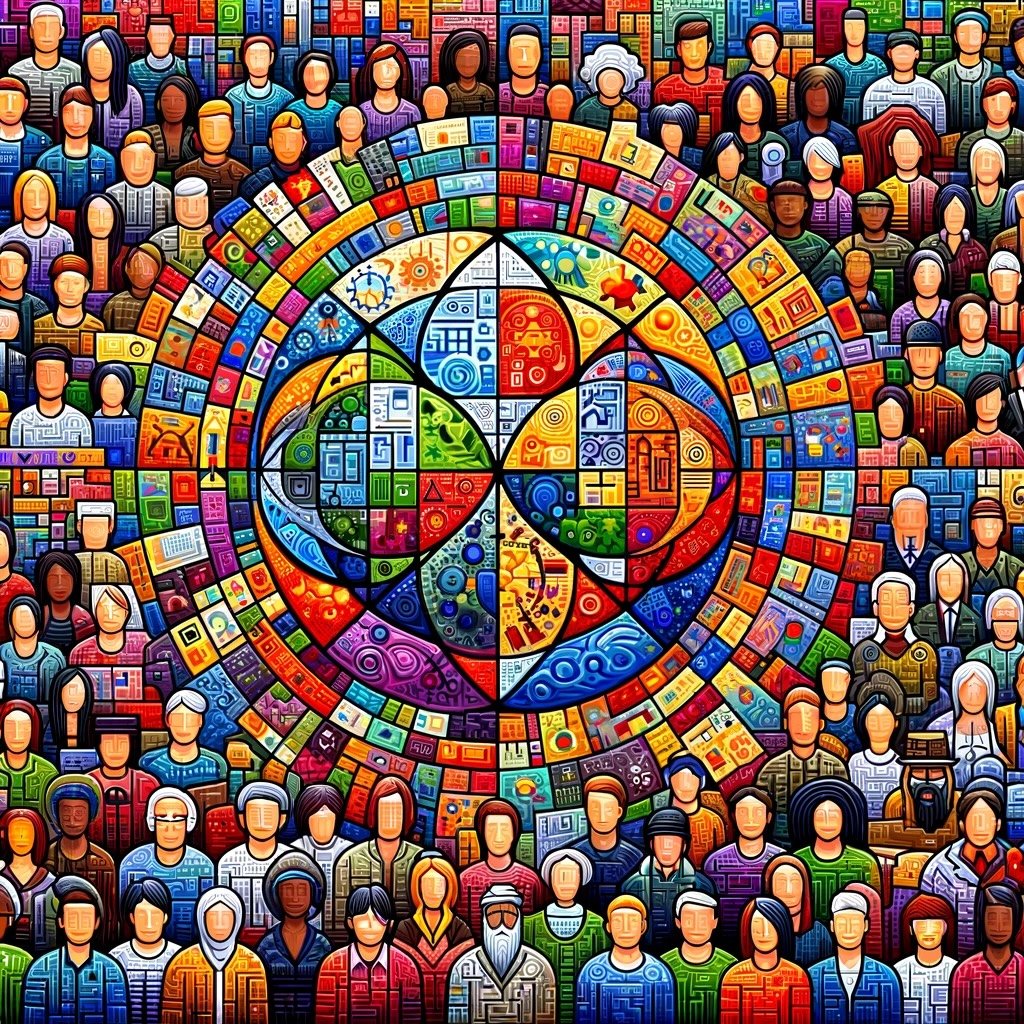Welcome to my blog!
Every morning, I begin with a cup of coffee and 15 minutes of free thinking. I write down everything that comes to mind, from new ideas to thoughts that emerged overnight. This is where I develop and refine my new research. You'll find some repetition and ideas still in progress. Some might seem unusual or unclear at first, but that's part of the journey! I'm excited to share how my ideas form and evolve.
Exploring the relationship between logic and language, and questioning whether this relationship ultimately leads to psychologism.
Examining the central role of language in Twentieth-century analytical philosophy and the relationship between language, thought, and logic.
Exploring the distinct roles of logic and mathematics in understanding material and conceptual coherence, and how each contributes to different domains of reasoning.
Examining the possibility of non-violent change in addressing epistemic oppression and the potential for a "quiet revolution" in rebalancing societal powers.
Exploring the limitations of traditional Marxist theory in addressing modern societal complexities and the emergence of epistemic powers that shape contemporary inequities.
Today, I have the great honour of having a friend and colleague, Dr. Padriac O'Leary, contributing to Logic in the Wild blog. Dr. O'Leary recently joined the Computer Science department at the University of Auckland after completing a Ph.D. in philosophy with Prof. Fred Kroon. Today, Padriac elaborates on the idea of "logical impressionism," delving into its role in preserving coherence in complex contexts and its distinction from formal logic and rhetoric.
Exploring the principle of the climber’s agreement in the climbing community and proposing a similar approach to coherence and understanding in logical discourse.
Exploring the intersection of social epistemology and logic, examining how knowledge and coherence are affected when perspectives are pooled in a community.
Boolean negation inherits the law of non-contradiction from mathematics, but does it also get the rule of explosion? Exploring the implications of Boolean negation for logical consistency and the potential for coherent reasoning in the presence of inconsistency.
Exploring how intersectionality challenges the concept of sex as a binary or spectrum and invites us to view it through a pluralistic manifold.
Exploring the intersection of practice and theory in logic, and how a richer approach enhances both.
Exploring Andrea Nye's critique of logic and the challenges of addressing gender symbolism in philosophical discourse.
Examining the historical exclusion of women from the domain of logic and how feminism reveals the unequal distribution of epistemic power and the fabrication of gendered reasoning.
Exploring how Ancient Greek notions of harmony reveal the essence of logical thinking as a pursuit of coherence, connecting music, mathematics, and the cosmos.
This post explores how the term ‘logic’ is used in various contexts, from political ideologies to natural processes, and questions whether it genuinely reflects logical reasoning in the scenarios it describes.
In this post, I explore the implications of the "Kiwi Before Iwi" slogan and its strict adherence to the logic of equality, questioning whether it truly serves justice or perpetuates inequality.
This post explores the distinctions between neutrality, equality, and equity in logical discourse, emphasizing the importance of creating a fair and inclusive space for dialectical enquiry. While neutrality aims for equal treatment, true equity ensures that all voices are heard and valued, preventing the erasure of marginalized perspectives.
This post explores David Lewis's theory of modal realism, which posits the existence of possible worlds to account for our modal discourse, and asks whether this view is coherent and cogent.
This post delves into the complex task of defining the self, examining the role of logic in providing coherence to our understanding of identity and presence in the world.
This post explores the intriguing connection between logical thinking and authenticity, suggesting that coherence rather than truth might be the key to understanding our true selves.
Exploring a concrete example of logic in everyday life, this post challenges the perception of logic as an emotionless, external tool. It highlights how logic protects us by guarding coherence in reasoning, rather than dictating surprising, non-human decisions.
This post explores the principle of charity in argumentation, emphasizing the importance of interpreting others' arguments generously and the role of logic in fostering charitable discourse.
This post explores the necessity of logic in community development, highlighting how logical interaction fosters a neutral space for dialectical enquiry, enabling diverse perspectives to find common ground without imposing majority beliefs.
In this post, I explore how epistemic structures, akin to Kuhn's scientific paradigms, can become oppressive logical monsters. These structures, passed down through generations, resist change and contribute to systemic injustice. Can seeking coherence in dialectical enquiry offer a path to overcoming cultural incommensurability and fostering better communication across paradigms? Is a Kuhnian analysis the right approach to understand epistemic oppression?
Short description: This post explores the concept of "emerging structural oppression," examining how power structures evolve and perpetuate systemic and epistemic oppression, with a focus on the role of logic in reinforcing these injustices.
his post explores how logic can be systemically oppressive, drawing on the works of Fricker, Dotson, and Mills to examine the intersection of epistemic injustice, white ignorance, and the inertia of dominant epistemic systems.
This post asks why we keep interrupting each other. Is it out of good intentions? Learn how a simple trick of posing uptake questions can help us do better.
This post explores the importance of engaging with a logical mindset in discussions, using a personal experience to illustrate how logical enquiry can foster constructive communication.
This post explores whether logical injustice is a distinct kind of injustice or if it is reducible to social injustice, drawing parallels with epistemic and hermeneutical injustices.
Examining the ways populism exploits incoherence and bad logic to make truth irrelevant, and the dangers this poses to political discourse.
Examining the possibility of non-violent change in addressing epistemic oppression and the potential for a "quiet revolution" in rebalancing societal powers.
Exploring the limitations of traditional Marxist theory in addressing modern societal complexities and the emergence of epistemic powers that shape contemporary inequities.
This post explores how the term ‘logic’ is used in various contexts, from political ideologies to natural processes, and questions whether it genuinely reflects logical reasoning in the scenarios it describes.
In this post, I explore the implications of the "Kiwi Before Iwi" slogan and its strict adherence to the logic of equality, questioning whether it truly serves justice or perpetuates inequality.
This post challenges the rapid-fire nature of social media interactions and proposes the concept of "logic duty" as a civic responsibility to deliberate on societal issues, encouraging deeper understanding and coherent decision-making beyond the divisive echo chambers.
This post explores how learning logic not only sharpens individual reasoning and debate skills but more importantly serves as a foundational tool for fostering societal cohesion and constructive dialogue.
This post discusses the nuanced question of whether accusations of racism can themselves be racially motivated, especially in light of recent criticisms by NZ political leaders against designated spaces for Māori and Pacifica students.
This blog addresses the contentious debate surrounding designated spaces for Māori and Pacifica students at The University of Auckland, refuting accusations of racism with a nuanced discussion on community, identity, and the tu quoque fallacy.
This blog post is a response to Winston Peters' "state of the nation" speech, focusing on his incoherent analogy between the Labour Party and Nazi Germany, and and denouncing his deployment of inflammatory demagogical rhetoric in prominent New Zealand's political discourse.
This post examines how demands for equity by marginalized groups are often misinterpreted as calls for special treatment, particularly when these groups are ethnic minorities, using a notable speech by Don Brash as a case study.
This post critiques the divisive rhetoric of New Zealand's political leaders, urging a more mature approach to discourse while preserving the passionate critique embedded in the original argument.
This post explores the nuanced dynamics of group versus individual accountability, particularly in historical and social justice contexts, emphasizing the complexity of attributing actions and consequences across different societal levels.
This post explores how the interpretation of the Treaty of Waitangi's translations can lead to a form of oppression through the imposition of foreign logical frameworks on Māori concepts, using the term 'tikanga' as a key example.
In this post, we examine abstract equality through logic and its potential to overlook the experiences of marginalized groups.
Exploring the value of a father's advice, "Shut up and listen!", this post urges leaders to embrace active listening in the context of Waitangi weekend.
This post explores how narrowing our focus from broad generalizations to specific groups reveals deeper truths and addresses social inequities.
Is societal justice about treating everyone identically, or does it demand a more nuanced, equitable approach?
This post explores the tension between logical neutrality and the erasure of individual identities in New Zealand's political landscape, examining the implications for Māori communities.
Exploring the crucial role of logical integrity in political decision-making, this post examines the varied application of logic in politics through the case of New Zealand Prime Minister Christopher Luxon's early actions and statements, emphasizing the need for consistent logical reasoning in governance.
This piece delves into the nuanced spectrum between competition and cooperation, questioning traditional views of these concepts and exploring their roles in both natural and human-made systems.
In this post, I explore the forest as a metaphor for competition and cooperation, contrasting the individualistic struggle for resources with the collaborative symbiosis of the ecosystem, and introducing relational ontology as a holistic view that transcends these dualities.
This blog delves into the concept of relational identity, drawing from Māori philosophy and Anne Salmond's work, to explore how identity extends beyond personal confines and encompasses a holistic network of relationships, particularly within the LGBTQ+ community.
Exploring the principle of the climber’s agreement in the climbing community and proposing a similar approach to coherence and understanding in logical discourse.
This post explores the principle of charity in argumentation, emphasizing the importance of interpreting others' arguments generously and the role of logic in fostering charitable discourse.
Exploring logical injustice, the post emphasizes the importance of using appropriate logical standards in everyday discussions and decision-making.
Drawing from the traditional principle of charity, I introduce the Principle of Logical Charity, encouraging the treatment of others' views as both intelligent and logically coherent in conversations.
In this blog post, I explore how my journey as a logician, initially focused on abstract content, evolved to embrace real-world interactions, from teaching diverse students to considering feminist critiques and the nature of metaphysics and mathematics.
Exploring the distinct roles of logic and mathematics in understanding material and conceptual coherence, and how each contributes to different domains of reasoning.
Exploring how Ancient Greek notions of harmony reveal the essence of logical thinking as a pursuit of coherence, connecting music, mathematics, and the cosmos.
This post explores how the term ‘logic’ is used in various contexts, from political ideologies to natural processes, and questions whether it genuinely reflects logical reasoning in the scenarios it describes.
This post delves into the complex task of defining the self, examining the role of logic in providing coherence to our understanding of identity and presence in the world.
This post explores the intriguing connection between logical thinking and authenticity, suggesting that coherence rather than truth might be the key to understanding our true selves.
Exploring a concrete example of logic in everyday life, this post challenges the perception of logic as an emotionless, external tool. It highlights how logic protects us by guarding coherence in reasoning, rather than dictating surprising, non-human decisions.
his post explores how logic can be systemically oppressive, drawing on the works of Fricker, Dotson, and Mills to examine the intersection of epistemic injustice, white ignorance, and the inertia of dominant epistemic systems.
This post explores whether logical injustice is a distinct kind of injustice or if it is reducible to social injustice, drawing parallels with epistemic and hermeneutical injustices.
This blog post introduces the concept of logical injustice, exploring its parallels with epistemic and hermeneutical injustices, and discusses how failing to appreciate the coherence in someone's thoughts constitutes this new form of injustice.
In this blog post, I propose the rule of trivialisation as a generalisation of the logical rule of Explosion, and I discuss difficulties in finding practical ways of using it. I question whether absurdity could provide a new metric for assessing logical coherence.
This blog post discusses the rule of explosion in logic, which posits that from any contradiction, everything follows—resulting in what is known as triviality. I explore the limitations of this principle and introduce a nuanced approach termed 'trivialisation' that seeks to redefine how we measure coherence without insisting on strict consistency.
This blog post explores the intricate relationship between logical and conceptual choices, questioning whether decisions based solely on definitions can exist independently of logical connections, and how logic imposes boundaries on conceptual behavior.
This blog post discusses the principle of explosion in logic, exploring how it traditionally mandates that any contradiction leads to everything becoming true, and why some modern logicians choose to reject this rule to handle inevitable contradictions more gracefully.
This post examines how logic extends beyond mere truth-seeking, illustrating its role in understanding coherence in historical scientific theories and contemporary societal debates, from ancient optics to modern sports equity.
This post examines the transition from the symbolic complexities of logic to its practical applications in daily life, questioning how deeply the principles of logical theory influence our everyday reasoning.
Exploring the role of logic in enhancing personal understanding and improving community interactions, facilitating a bridge between differing perspectives.
This post explores the deep-seated issues of epistemic injustice faced by queer and trans individuals, highlighting the pivotal role of language and community in affirming identity and the dire consequences of its absence.
This blog post is a response to Winston Peters' "state of the nation" speech, focusing on his incoherent analogy between the Labour Party and Nazi Germany, and and denouncing his deployment of inflammatory demagogical rhetoric in prominent New Zealand's political discourse.
In this post, the Logic in the Wild framework is employed to refresh feminist critiques of logic, steering away from evolutionary simplifications and gender symbolism errors.
Exploring a friend's journey with Jesus, this post reveals how his faith leads to a profound appreciation for the beauty in every individual, transcending traditional religious divides.
This post explores the ethical implications of logical coherence through the lens of Viktor Bout's life, illustrating how logic's misuse can lead to morally questionable outcomes.
Exploring the value of a father's advice, "Shut up and listen!", this post urges leaders to embrace active listening in the context of Waitangi weekend.
Can harmony be considered as a guardian of coherence?
This post explores the intersection of logic and empathy in understanding others, highlighting the limitations of empathy in our socially fragmented world and the role of logic as a 'guardian of coherence'.
In this post, I explore how changing content in a farcical setting, as shown in "Happiest Season," dramatically shifts its narrative impact from comedy to tragedy, prompting reflection on what this teaches us about logic and coherence when contexts are altered.
In this post, I examine Barbie's pearl of wisdom from her latest movie, revealing the enriching balance between logic and emotion.
o conclude a provocative blog week, this post defends dialetheism, weaving together this unique philosophical perspective with the ideas of validity as a social construct and logical nihilism.
Revisiting the concept of validity as a social construct, this post incorporates insights from Gillian Russell and logical nihilism, enhancing the understanding of logic as 'the guardian of coherence' in 'Logic in the Wild'.
Logic in the Wild argues against the conventional formal/informal logic divide, showcasing logic as a multifaceted guardian of coherence across various domains.
Exploring the crucial role of logical integrity in political decision-making, this post examines the varied application of logic in politics through the case of New Zealand Prime Minister Christopher Luxon's early actions and statements, emphasizing the need for consistent logical reasoning in governance.
This post explores the intersection of logic and empathy in understanding others, highlighting the limitations of empathy in our socially fragmented world and the role of logic as a 'guardian of coherence'.
o conclude a provocative blog week, this post defends dialetheism, weaving together this unique philosophical perspective with the ideas of validity as a social construct and logical nihilism.
This post examines the challenging demands of empathy in a polarized world and proposes logic as a vital tool to bridge understanding and foster empathy amidst diverse viewpoints.
Explore how the social constructs of sex, race, homosexuality, and heterosexuality are shaped by societal norms and scientific inquiry, revealing the intricate ways in which our understanding of identity is formed and challenged within the evolving landscapes of society and science.
Exploring the intricate link between gender identity and biological sex, this post investigates how societal constructs around 'man/woman' influence our understanding of the 'male/female' distinction. It questions the origins of social pressure that shapes our perceptions, challenging us to rethink the boundaries between biological realities and cultural expectations.
Highlighting the realization that societal pressures can lead science to alter its definitions, this post ventures into the intricate relationship between biology, astronomy, and the social constructs of sex and planetary classification.
Today, I have the great honour of having a friend and colleague, Dr. Padriac O'Leary, contributing to Logic in the Wild blog. Dr. O'Leary recently joined the Computer Science department at the University of Auckland after completing a Ph.D. in philosophy with Prof. Fred Kroon. Today, Padriac elaborates on the idea of "logical impressionism," delving into its role in preserving coherence in complex contexts and its distinction from formal logic and rhetoric.
Exploring the relationship between logic and language, and questioning whether this relationship ultimately leads to psychologism.
Examining the central role of language in Twentieth-century analytical philosophy and the relationship between language, thought, and logic.
Examining the possibility of non-violent change in addressing epistemic oppression and the potential for a "quiet revolution" in rebalancing societal powers.
Exploring the limitations of traditional Marxist theory in addressing modern societal complexities and the emergence of epistemic powers that shape contemporary inequities.
Exploring the intersection of social epistemology and logic, examining how knowledge and coherence are affected when perspectives are pooled in a community.
Boolean negation inherits the law of non-contradiction from mathematics, but does it also get the rule of explosion? Exploring the implications of Boolean negation for logical consistency and the potential for coherent reasoning in the presence of inconsistency.
Exploring the intersection of practice and theory in logic, and how a richer approach enhances both.
Exploring Andrea Nye's critique of logic and the challenges of addressing gender symbolism in philosophical discourse.
Examining the historical exclusion of women from the domain of logic and how feminism reveals the unequal distribution of epistemic power and the fabrication of gendered reasoning.
Exploring how Ancient Greek notions of harmony reveal the essence of logical thinking as a pursuit of coherence, connecting music, mathematics, and the cosmos.
This post explores David Lewis's theory of modal realism, which posits the existence of possible worlds to account for our modal discourse, and asks whether this view is coherent and cogent.
This blog post explores the role of logic as an epistemic tool, clarifying that while it does not directly determine truth, it is crucial in structuring knowledge. The discussion also touches on the concept of epistemic injustice and how denying logical tools can perpetuate systemic biases.
This post challenges the rapid-fire nature of social media interactions and proposes the concept of "logic duty" as a civic responsibility to deliberate on societal issues, encouraging deeper understanding and coherent decision-making beyond the divisive echo chambers.
This post examines how logic extends beyond mere truth-seeking, illustrating its role in understanding coherence in historical scientific theories and contemporary societal debates, from ancient optics to modern sports equity.
This post explores the perceived divide between the complex theories of formal logic and the practical logic we employ daily, bridging the gap between specialized academic knowledge and everyday reasoning.
This blog post explores Miranda Fricker's concept of testimonial injustice, examining whether epistemic injustice is appropriate unless knowledge is somehow objective.
Exploring a friend's journey with Jesus, this post reveals how his faith leads to a profound appreciation for the beauty in every individual, transcending traditional religious divides.
Exploring the depth of coming out, this post argues it encompasses far more than sexual preferences, embodying a rich identity and presence within the community.
Demonstrating how logic, as the guardian of coherence, directly led to the invention of the modern computer, transforming abstract theories into the foundation of today's technology.
This post explores classical logic, not as the logic of ancient times, but as a twentieth-century European development, focusing on its evolution from public debate tools to the formal languages shaping modern mathematics.
This post challenges the conventional understanding of evolutionary success, exploring the logical fallacies often embedded in patriarchal frameworks of biological interpretation.
This blog post challenges the prevalent notion that logic is alien to human nature, suggesting instead that it is an intrinsic tool evolved from our limitations.
After watching "Oppenheimer," a film about a pivotal scientific development, I'm inspired to share a thought-provoking quote from Rev. Māori Marsden's "The Woven Universe," offering a unique perspective on this historical moment.
In this post, I explore how changing content in a farcical setting, as shown in "Happiest Season," dramatically shifts its narrative impact from comedy to tragedy, prompting reflection on what this teaches us about logic and coherence when contexts are altered.
This post explores the challenges and potential solutions in addressing intersectional oppression through the lens of top-down and bottom-up logical approaches, inspired by the limitations of ceteris paribus logic in social contexts.
Exploring the WSCM equation, this post navigates through how upward and downward dynamics of oppression and privilege redefine intersectionality and call for a unified approach to social justice.
This post challenges the long-standing myths that marginalized groups possess lesser intellect, using intersectionality to highlight the absurdity of such claims.
This post explores the tension between logical neutrality and the erasure of individual identities in New Zealand's political landscape, examining the implications for Māori communities.
I examine the 'same logic, same response' slogan, focusing on its limitations.
Logic and Empathy: Navigating Social Landscapes
This post explores the intersection of logic and empathy in understanding others, highlighting the limitations of empathy in our socially fragmented world and the role of logic as a 'guardian of coherence'.
While acknowledging the speculative nature of these ideas, I find the perspective of viewing logic through the lens of social and psychological evolution quite inspiring. It helps frame its influence and function within our communities. This week, as I delve into the notion that logic is intrinsically linked to human activity, my journey is one of exploration rather than justification. My goal isn't to establish or defend theories about the origins of logic but to challenge myself to view logic from a fresh perspective. Trained primarily by mathematicians in formal logical methods, I'm now venturing to consider logic from an entirely different viewpoint.
Today, I revisit a useful comparison when contemplating logic's value within the community: its contrast with empathy. We are complex creatures, possessing brains capable of imagination, reasoning, and foresight, coupled with minds that experience a rich tapestry of emotions. It's crucial to not only understand our own feelings, which is a complex task in itself, but also to comprehend the emotions of others. Before engaging in activities like courting, negotiating, or collaborating, it's beneficial to grasp how others feel about us and their general emotional state. Sorting through one's own emotions is challenging enough; attempting to understand the feelings of others is even more so. This challenge intensifies with lesser familiarity and grows exponentially across cultural, spatial, or temporal divides.
Empathy demands that we not only understand but also deeply resonate with another person's perspective. It's the act of stepping into their shoes and experiencing their viewpoint. This requirement, I believe, is immensely challenging, especially in the age of social media. Our social circles now span hundreds, often including distant or unknown individuals. Continual exposure to the avatars of these distant connections leaves us struggling to empathize. In an ideal world, we would transcend social media's barriers and recognize the shared humanity behind these avatars – people who, like us, navigate daily life with its myriad routines and challenges. Yet, despite these commonalities, we find ourselves deeply divided along lines of morality, sexual and gender identity, belief systems, and political affiliations. In this fragmented social landscape, expecting empathy to serve as a bridge seems futile.
But here's where logic steps in. As I discuss in "Logic in the Wild," logic, in its role as the guardian of coherence, offers a way to understand and appreciate the beliefs of others. It allows us to find coherence in their thoughts without needing to fully immerse ourselves in their experiences. Logic provides a framework to navigate the complexities of human thought and interactions, especially in a world where empathy often falls short.
Dialetheism Alongside Validity as a Social Construct and Logical Nihilism
o conclude a provocative blog week, this post defends dialetheism, weaving together this unique philosophical perspective with the ideas of validity as a social construct and logical nihilism.
This week I argued that validity is a social construct and I defended logical nihilism. While I’m at it, I might as well tell you why I’m a dialetheist. To be a dialetheist is to believe in the existence of true contradictions. This might sound perplexing at first. Take, for instance, statements like "I am human and I am not human" or "It’s 23 degrees in Auckland and it isn’t 23 degrees in Auckland." These are clear contradictions, and it would indeed seem absurd to claim they are true. In fact, they are false. This initial sense of absurdity is precisely the challenge that dialetheism addresses.
Historically, in the European tradition, Aristotle is often recognized for formulating the law against contradictions. Rather than definitively defending this law, Aristotle articulated it in various ways, some of which are blatantly false. Despite these inaccuracies, his authority has consistently been used to deny the possibility of contradictions. This complex narrative, including Aristotle's contributions and their implications, is more deeply explored Logic in the Wild.
As I’ve discussed this week, Twentieth-century logic has been obsessively seeking the foundations of mathematics, which are supposed to provide logical underpinnings for all reasoning considered 'valid' (a notion I argue is a social construct). Therefore, asserting the existence of true contradictions in the 21st century directly challenges this long-established tradition, particularly within mathematical logic. To claim that the quest for mathematical foundations was merely a dream, disrupted by the reality of true contradictions, is naturally (and here I empathize with the reaction) perceived as an offense.
However, recognizing true contradictions does not mean we forsake all rationality. Accepting every contradiction would lead to triviality, where everything is considered true - a situation no logician accepts. Even we dialetheists, who acknowledge certain contradictions, staunchly reject this notion of triviality. Our focus lies on what I describe in "Logic in the Wild" as 'insolubles,' statements that, based on first principles, imply each other’s opposites. The Liar paradox is a classic example, asserting “I am a false sentence.” This paradox demonstrates a true contradiction through its self-referential nature: if it’s true, then what it says is true, namely that it’s false, so it’s false. But if it’s false, it’s false that it is false, so it is true (double negation, first principle). So it’s a true contradiction. Weird? Sure, but not trivial.
In the chapter “Logic in the Weird” of Logic in the Wild, you’ll discover how logic guards coherence in the face of the weird, the absurd, the paradoxical, and the insoluble. Writing this book has altered my perspective, especially regarding how logic functions within a community. It has led me to a broader viewpoint that accommodates the practices of twentieth-century mathematical logicians, who sought coherence in mathematics, while also allowing logic to uphold coherence in more perplexing contexts. Recognizing that logic isn't governed by universal laws (logical nihilism) frees it within the community, offering an alternative to full-blown emotional empathy. This, I believe, marks the beginning of logic’s rehabilitation.
Logic at the Rescue of Empathy: Navigating Societal Divides
This post examines the challenging demands of empathy in a polarized world and proposes logic as a vital tool to bridge understanding and foster empathy amidst diverse viewpoints.
The world is increasingly becoming divided, with each of us drifting further apart, quick to judge and categorize others. Social media has exacerbated this issue, creating echo chambers that resemble small fiefdoms of personal beliefs. Barack Obama once pointed out the crucial need for empathy in healing our fragmented world. In an interview, he highlighted the absence of empathy, noting that regardless of our differences, we all face similar challenges: raising and loving our families, earning a living, and maintaining our health. This idea transcends the divides in our polarized society. Even those who seem diametrically opposed to us share fundamental human needs like family, sleep, food, and employment.
The Obamas' latest film production echoes this theme, depicting an America torn apart by societal polarization. A pivotal scene features a survivalist and a person of color in a standoff, with a potentially violent outcome looming. However, an academic intervenes, urging the survivalist to recognize their shared humanity, their mutual need to protect and care for their families. This moment underlines the potential of empathy as a tool for mending societal rifts.
But is empathy alone the solution to our fragmented society? In theory, yes, but in practice, it may be too demanding. Empathy requires us to fully share in another's feelings, a challenging feat. For example, observing the new coalition forming the New Zealand government – comprising conservatives, neoliberals, and demagogues – I find it impossible to empathize with their perspectives. Their views on the country's direction evoke feelings of disgust in me, especially when considering Winston Peters's contempt for dissenting opinions. Sympathy, defined as feeling pity for someone else's misfortune, also doesn't apply here.
What remains, then, is logic. In Logic in the Wild, I argue that logic provides a neutral ground for dialectical inquiry. It enables us to engage with differing viewpoints and find common interests, decisions, or beliefs without the necessity of shared emotions. Logic allows us to appreciate Obama's insight: despite our ideological or cultural differences, we have more in common than we might realize. It requires us to suspend personal beliefs and strive for constructive communication. While Obama is right in advocating for more empathy, we don't necessarily need to transform everyone into empaths. Instead, recognizing the unifying power of logic can be a first step toward finding common ground amidst differences. Perhaps logical interaction within the community can even pave the way toward developing empathy. Let's give logic a chance!
























































































Examining the ways populism exploits incoherence and bad logic to make truth irrelevant, and the dangers this poses to political discourse.